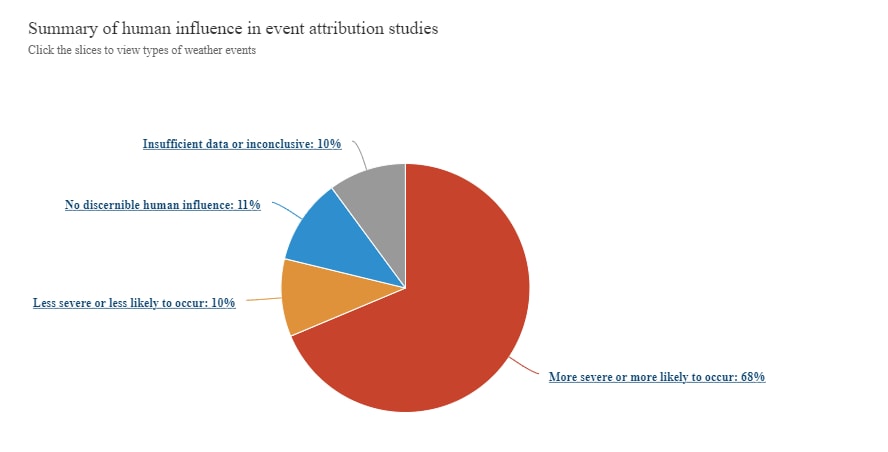Weather reports could soon be telling us about the role of climate change

Seeing the big picture.
Image: REUTERS/Ricardo Rojas
Stay up to date:
Future of the Environment
“It will be largely cloudy in the north-west today, with a medium risk of extreme flooding because of climate change…”
Is this the weather forecast of the future?
Forecasters may soon be adding information about the effects of climate change to their reports, thanks to a new service being rolled out by the EU’s earth observation programme, Copernicus.
It is currently looking for a company to pilot its climate change information service, Copernicus Climate Change Service – or C3S. The aim is to use information on extreme weather events and how they relate to climate change to boost public awareness, distributing it via weather agencies and the media.

The service will also be made available to a range of intergovernmental organizations and businesses concerned with the effects of climate change on society, for example in the legal, health and insurance sectors.
C3S pulls on science from the World Climate Research Programme to provide climate data and information to scientists, consultants, planners and policy-makers.
Climate change in real time
Directly linking human activity and extreme weather is a tricky and evolving science. But by tying the two, scientists hope climate change will become less abstract and the public more aware of their role in influencing floods, droughts, and heatwaves.

Recent analysis by climate science website Carbon Brief of research in this area concluded that over two-thirds of extreme weather events were made more likely or more severe because of humans.
The World Weather Attribution initiative, a partnership between the Environmental Climate Change Institute at the University of Oxford, the Royal Netherlands Meteorological Institute and the Red Cross Red Crescent Climate Centre, aims to look at the effects of climate change on weather around the world as it happens.
Its recent analysis of the current extreme heatwaves in France, for example, shows that the probability and severity of high temperatures have increased by at least fivefold because of climate change. The country’s all-time temperature record was broken at the end of June, with the thermometers hitting 45.9°C.
Don't miss any update on this topic
Create a free account and access your personalized content collection with our latest publications and analyses.
License and Republishing
World Economic Forum articles may be republished in accordance with the Creative Commons Attribution-NonCommercial-NoDerivatives 4.0 International Public License, and in accordance with our Terms of Use.
The views expressed in this article are those of the author alone and not the World Economic Forum.
Related topics:
Forum Stories newsletter
Bringing you weekly curated insights and analysis on the global issues that matter.
More on Nature and BiodiversitySee all
Andrea Willige
April 10, 2025
Tom Elliott and Tainah Godoy
April 3, 2025
Sophia Otoo and Cynthia Rayner
April 2, 2025
Nunzio Peleggi
March 28, 2025
Jack Hurd
March 27, 2025





